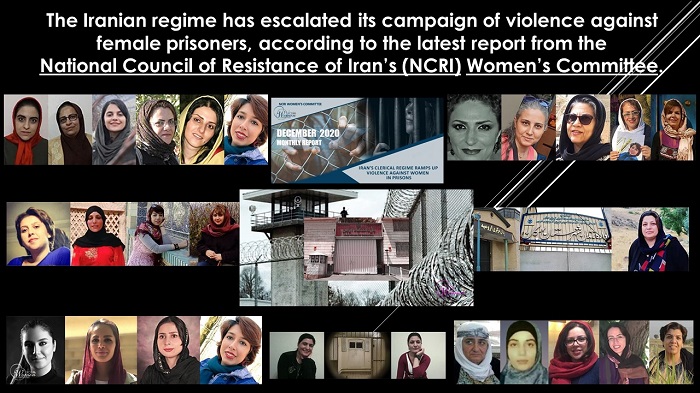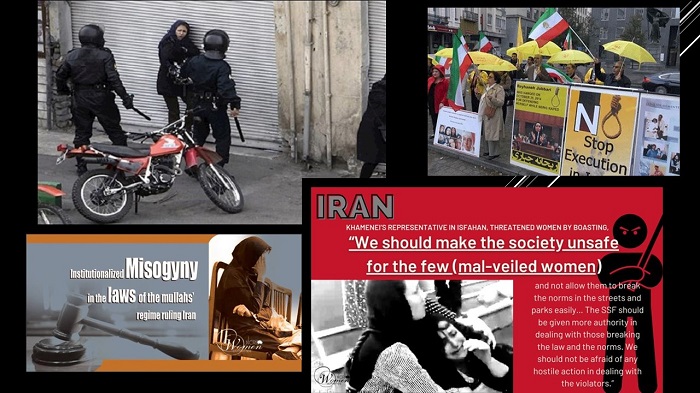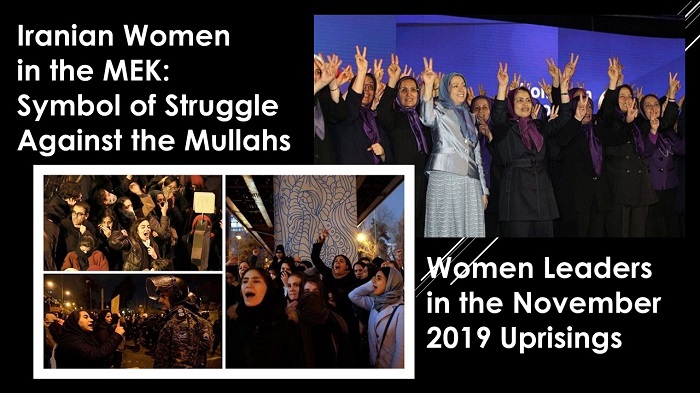
(NCRI) and (PMOI / MEK Iran): Violence against Women in Prisons.
In February 1979, the Iranian people rose up and removed the Shah from power in a popular uprising that was intended to free the country from a dictatorial monarch. Within a week of the Shah’s downfall, Ruhollah Khomeini stole the revolution and created his own clerical dictatorship.
Women systematic oppression
Under the mullahs’ rule, Iranian women have been deprived of the right to travel, work, choose their own clothing, and express their views.
Women have no legal rights or protections, they are prohibited from participating in public life, and they are even forbidden from singing in public.
Khomeini’s crackdown on women was swift and brutal. Iranian women saw their freedoms stripped away systematically at the hands of Khomeini and the mullahs’ regime.
The People’s Mojahedin of Iran (PMOI / MEK Iran) became the last bastion of hope for those who still believed in a free Iran. In the MEK, women took up the mantle of leadership and channeled their anger and frustration into the fight for freedom. Their fight continues today.

The main opposition organization, The People’s Mojahedin Organization of Iran (PMOI / MEK Iran), is indeed led by a woman, Mrs. Maryam Rajavi the President-elect of the National Council of Resistance of Iran’s (NCRI).
A timeline of women’s oppression
The following is a breakdown of some of the most egregious steps taken in the wake of the 1979 Revolution to oppress Iranian women:
1979
February 26, 1979: Khomeini’s office announces the repeal of the Shah-era Family Protection Act.
February 27, 1979: The Women’s Social Services Act is repealed.
February 28, 1979: Women are banned from athletic competitions.
March 2, 1979: Women are prohibited from holding judicial appointments.
March 4, 1979: Men are given the exclusive and unconditional right to divorce their wives.
March 7, 1979: Khomeini issues a fatwa making it mandatory for female government workers to cover their hair while at work.
May 22, 1979: A woman is flogged in public for the first time.
July 12, 1979: The first three women are executed on charges of committing vice.
September 30, 1979: Khomeini’s regime passes a new law to replace the Family Protection Act. Women are granted no protection under the new law.
1980
February 3, 1980: Female doctors and nurses are required to wear the compulsory veil at work.
April 19, 1980: Female singers are summoned to court and prohibited from singing in public.
June 29, 1980: Two women are stoned to death in Kerman Province.
1981
Late 1981: Public transportation, recreation areas, beaches, and other public areas are all segregated by sex.
1983
1983: The legal age for girls to be married is lowered to 9.
1983: The hijab is made mandatory for all women, and those who appear in public or in the streets without the religious veil are punished by 74 lashes of the whip.
1991
November 5, 1991: The marriage age for girls is raised to 13, but a loophole is written into the law. It says: “Marriage of girls before 13 solar years and boys before 15 solar years is conditioned on the permission of the guardian on the condition that a qualified court deems it appropriate.”
Gender-segregated
The abuses listed above is far from complete, and the regime did not stop taking away women’s rights after its initial blitz on female autonomy. In January 2016, the Majlis (parliament) passed a bill requiring any workplace employing women to be completely gender-segregated. It also prohibits women from working between the hours of 10 PM and 7 AM.
A 2012 law prohibits women from seeking university degrees in 77 fields of study and mandates that universities admit only one sex.
Women may not obtain a passport or travel outside of the country without permission from their husbands or fathers. Women may not enter athletic stadiums. They inherit a fraction of what their male counterparts do, leaving widows destitute in many cases. They have virtually no legal standing. They are forbidden from bicycling.

The MEK and NCRI have put women at the forefront of the movement’s leadership.
Iranian women push back
Women in Iran have been oppressed for four decades, but they have not gone silent. In November 2019, people across Iran rose up to call for regime change. News outlets across the world reported on the Iranian women leading the charge for change. Outsiders were surprised to see these oppressed women fighting the tyrannical regime, but close observers of Iran expected no less.
Iranian women lost their rights suddenly and without their consent. Many of these women joined the MEK to get those rights back. Under the leadership of the National Council of Resistance of Iran (NCRI) President-elect Maryam Rajavi, women and men work tirelessly for Iran’s democratic future.

(NCRI) and (PMOI / MEK Iran): Women Leaders, many of these women joined the MEK to get those rights back.
and People’s Mojahedin Organization of Iran – MEK IRAN – YouTube
